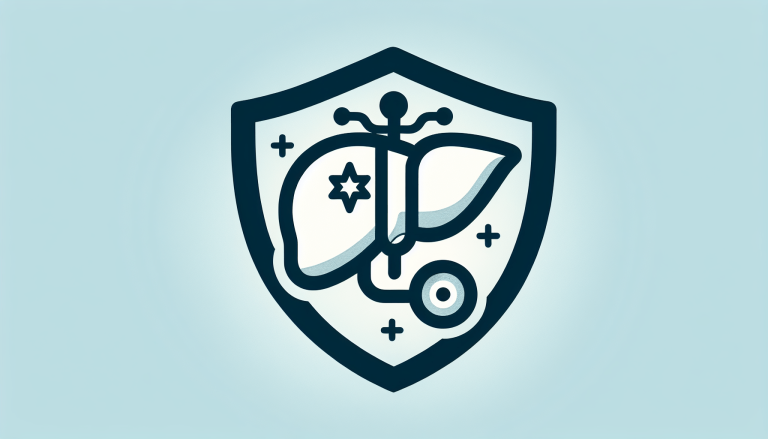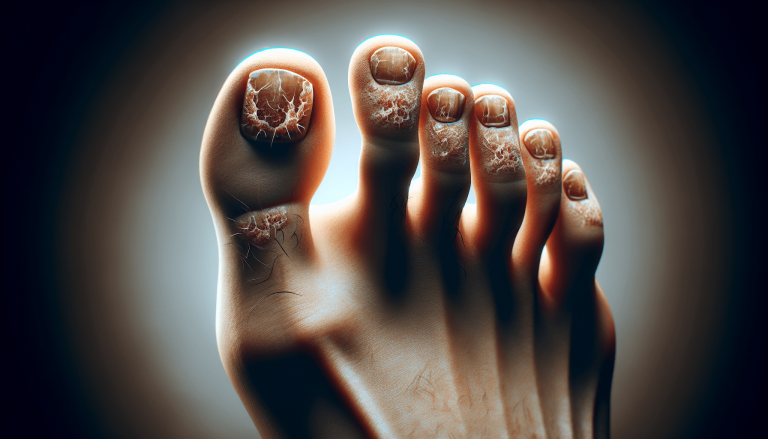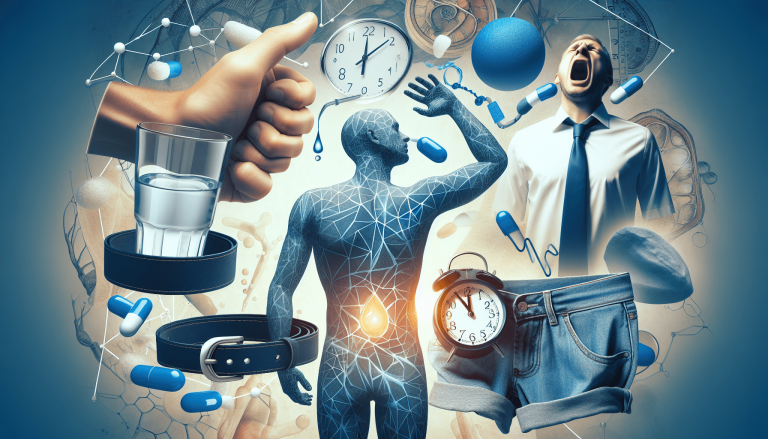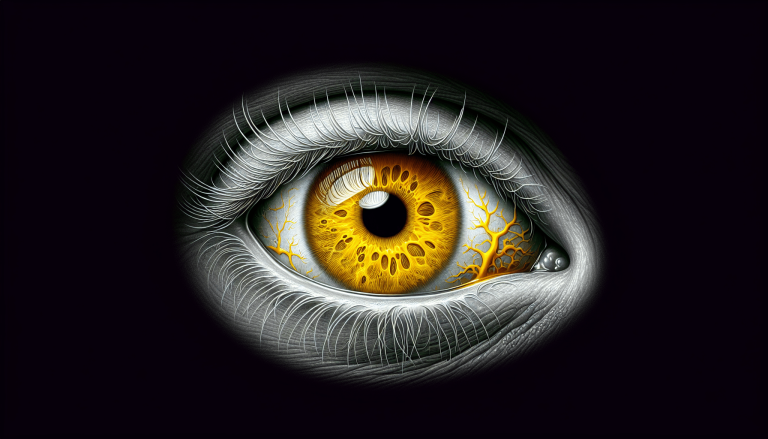How Does Your Body Warn You That Liver Disease Is Coming?
Have you ever wondered how your body signals that liver disease may be on the horizon? Pay close attention to subtle changes like persistent fatigue, unexplained weight loss, or abdominal pain. Your body may provide warning signs through these symptoms, urging you to seek medical advice and take preventive action to protect your liver health. Keep a lookout for any unusual changes in your body and be proactive in maintaining a healthy lifestyle to prevent liver disease from developing.
Signs and Symptoms of Liver Disease
When it comes to liver disease, your body often sends out warning signs that something might be wrong. It’s important to pay attention to these signs and symptoms in order to catch liver disease early and seek treatment. In this article, we’ll explore some common ways that your body might warn you that liver disease is on the horizon.

Abdominal Pain and Swelling
One of the most common signs of liver disease is abdominal pain and swelling. This can be due to the liver becoming enlarged or inflamed, causing discomfort in the upper right quadrant of your abdomen. If you start to experience persistent abdominal pain or notice swelling, it’s important to see a doctor and get checked out.
Fatigue and Weakness
Feeling constantly tired and weak even after a full night’s rest could be a sign of liver disease. The liver plays a crucial role in producing energy and when it’s not functioning properly, you may feel fatigued all the time. If you find yourself struggling to get through the day despite getting enough sleep, it’s worth discussing with your healthcare provider.
Yellowing of the Skin and Eyes
Jaundice is a common symptom of liver disease and is characterized by yellowing of the skin and eyes. This occurs when the liver is unable to properly process bilirubin, a pigment produced from the breakdown of red blood cells. If you notice a yellow tint to your skin or eyes, it’s essential to seek medical attention as soon as possible.
Nausea and Vomiting
Persistent nausea and vomiting can be another warning sign that your liver might be in trouble. When the liver is not functioning correctly, it can lead to a buildup of toxins in the body, resulting in digestive issues like nausea and vomiting. If you’re experiencing these symptoms regularly, it’s important to address them with your healthcare provider.
Loss of Appetite
A sudden loss of appetite or a feeling of fullness even after eating small amounts of food can be a warning sign of liver disease. The liver plays a significant role in producing bile to aid in digestion, so when it’s not working properly, it can impact your appetite. If you’re finding it difficult to eat or have lost interest in food, it’s crucial to get checked out by a healthcare professional.
Dark Urine and Pale Stools
Changes in the color of your urine and stools can also be indicators of liver disease. Dark urine and pale stools can occur when the liver is not producing enough bile to break down fats properly. Keep an eye on the color of your urine and stools, and if you notice any significant changes, it’s best to consult with your doctor.
Itchy Skin
If you’re experiencing persistent itching all over your body, it could be a sign of liver disease. This itching, also known as pruritus, can be caused by a buildup of bile salts under the skin due to liver dysfunction. If you find yourself constantly scratching or notice a rash developing, it’s important to bring it to your doctor’s attention.
Risk Factors for Liver Disease
While anyone can develop liver disease, certain factors can increase your risk of experiencing liver problems. By understanding these risk factors, you can take steps to protect your liver health and lower your chances of developing liver disease.
Alcohol Consumption
Excessive alcohol consumption is one of the leading causes of liver disease. Drinking large amounts of alcohol over an extended period can lead to liver damage, inflammation, and eventually, liver disease. If you consume alcohol regularly, it’s important to do so in moderation and be aware of the potential impact on your liver health.

Obesity and Poor Diet
Being overweight or obese, especially with a diet high in processed foods and sugars, can increase your risk of developing liver disease. A diet high in fat and sugar can lead to fatty liver disease, where fat accumulates in the liver cells and impairs liver function. Maintaining a healthy weight and eating a balanced diet can help protect your liver health.
Viral Hepatitis
Chronic infections with hepatitis B or C viruses can also increase your risk of liver disease. These viruses can cause inflammation and damage to the liver over time, leading to conditions like cirrhosis or liver cancer. It’s essential to get tested for hepatitis if you’re at risk and to seek treatment if you’re diagnosed with a viral infection.
Diabetes and Metabolic Syndrome
Individuals with diabetes or metabolic syndrome are at a higher risk of developing liver disease. These conditions can lead to insulin resistance and cause fat to accumulate in the liver, increasing the risk of non-alcoholic fatty liver disease (NAFLD). Managing your blood sugar levels and adopting a healthy lifestyle can help prevent liver disease in individuals with diabetes or metabolic syndrome.
Medication and Toxin Exposure
Certain medications and exposure to toxins can also contribute to liver damage and increase the risk of liver disease. Some medications, like acetaminophen (Tylenol) in high doses, can be harmful to the liver. It’s essential to follow the recommended dosage of medications and avoid exposure to toxins that can harm your liver.
Preventing Liver Disease
Preventing liver disease starts with understanding the risk factors and taking proactive steps to protect your liver health. By making healthy lifestyle choices and prioritizing your well-being, you can lower your chances of developing liver disease and maintain optimal liver function.
Limit Alcohol Consumption
If you drink alcohol, it’s important to do so in moderation to protect your liver health. Limiting your alcohol intake to recommended guidelines can help prevent liver damage and reduce your risk of developing liver disease. If you’re struggling to control your alcohol consumption, consider seeking support or counseling to address any underlying issues.
Eat a Balanced Diet
Eating a healthy, balanced diet is essential for maintaining optimal liver health. Focus on incorporating a variety of fruits, vegetables, whole grains, and lean proteins into your meals to provide essential nutrients and antioxidants that support liver function. Limit your intake of processed foods, sugars, and unhealthy fats to protect your liver from damage.

Exercise Regularly
Regular physical activity is not only beneficial for your overall health but also plays a role in protecting your liver. Exercise can help reduce the risk of obesity, diabetes, and fatty liver disease, all of which can contribute to liver problems. Aim for at least 30 minutes of moderate exercise most days of the week to support your liver health.
Maintain a Healthy Weight
Being overweight or obese can increase your risk of liver disease, so maintaining a healthy weight is crucial for protecting your liver health. If you’re struggling with weight management, consider working with a healthcare provider or nutritionist to develop a plan that supports your long-term well-being. Focus on making sustainable lifestyle changes to achieve and maintain a healthy weight.
Get Vaccinated for Hepatitis
If you’re at risk of hepatitis infection, getting vaccinated can help protect your liver health. Vaccines are available for hepatitis A and B, which can prevent these viral infections and reduce the risk of liver disease. Talk to your healthcare provider about vaccination options and ensure you’re up to date on recommended immunizations.
When to See a Doctor
If you’re experiencing any warning signs or symptoms of liver disease, it’s important to seek medical attention promptly. Liver disease can have serious consequences if left untreated, so don’t delay in getting evaluated by a healthcare provider. Here are some situations in which you should consider seeing a doctor:
- Persistent abdominal pain or swelling
- Yellowing of the skin or eyes (jaundice)
- Chronic fatigue or weakness
- Nausea, vomiting, or digestive issues
- Loss of appetite or unexplained weight loss
- Changes in urine or stool color
- Itchy skin or rash
- Any other symptoms that concern you
Remember that early detection and treatment are key to managing liver disease and preventing complications. Your doctor can perform tests to evaluate your liver function and recommend appropriate treatment options based on your individual needs. Don’t hesitate to reach out for medical assistance if you’re experiencing any concerning symptoms related to your liver health.
In conclusion, your body can provide valuable warning signs when liver disease is on the horizon. By paying attention to these signs, understanding the risk factors, and taking proactive steps to protect your liver health, you can reduce your chances of developing liver disease and maintain optimal liver function. Remember to prioritize your well-being, listen to your body, and seek medical attention when needed to ensure your liver stays healthy for years to come.
Additional Resources
Say goodbye to liver damage and hello to optimal liver function with this breakthrough secret.
This amazing secret will change everything you ever thought was true about deteriorating liver cells.
Find out more here so you can start using it right now!
This major full liver-restoring discovery is too important to be kept buried. There’s never been a better time for such a method to rise.







